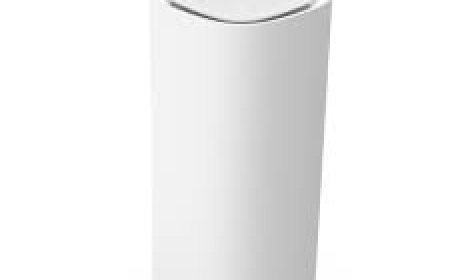Natural vs. Synthetic: What’s Really Better for You?

The debate between natural and synthetic products is not new. From food and skincare to supplements and even vaping, people are often faced with a choice. Which is better? Which is safer? More effective? These questions dont have one-size-fits-all answers, but understanding the facts can help you make informed decisions that suit your values and lifestyle.
In this article, well break down what natural and synthetic really mean, explore their differences, and look at their pros and cons in different industriesincluding food, health, and vaping. Well also consider how consumer behavior, such as visiting vape shops is shaped by these perceptions.
Understanding the Terms: What Do Natural and Synthetic Really Mean?
Before deciding which is better, it's important to know what were comparing.
-
Natural typically refers to substances that are derived from nature with minimal processing. These can include plant-based ingredients, minerals, and animal products.
-
Synthetic refers to substances created or altered by humans through chemical processes. They may be designed to mimic natural compounds or improve on them in terms of stability, cost, or performance.
Important Note: Natural doesnt always mean safer, and synthetic doesnt always mean harmful. These terms only describe originnot quality, safety, or effectiveness.
Pros and Cons in Food and Health Products
One of the most common areas where the natural vs. synthetic debate plays out is in food and health supplements.
Natural Options
Pros:
-
Often less processed.
-
Perceived as safer or more wholesome.
-
May contain a broader range of nutrients.
Cons:
-
Can spoil faster (shorter shelf life).
-
Can vary in potency.
-
May be more expensive or harder to find.
Synthetic Options
Pros:
-
More consistent in composition and potency.
-
Often have longer shelf life.
-
Usually less expensive and widely available.
Cons:
-
Some may contain additives or preservatives.
-
May lack trace nutrients found in natural sources.
-
Can trigger allergic reactions in sensitive individuals.
Example:
Vitamin C is a good example of how both options exist. You can get natural vitamin C from fruits like oranges, or synthetic versions from supplements. Chemically, both types are almost identical, and your body absorbs them similarly.
Natural and Synthetic in Skincare and Cosmetics
The skincare industry is filled with products labeled "natural," "organic," or "clean." But are natural ingredients really better for your skin?
Natural Ingredients
-
Derived from plants, fruits, or essential oils.
-
May be gentler for people with sensitive skin.
-
Examples: Aloe vera, coconut oil, shea butter.
Challenges:
-
They can cause irritation or allergic reactions in some people.
-
Often require preservatives to stay effective and safe.
Synthetic Ingredients
-
Designed for stability and specific functions (like anti-aging or acne-fighting).
-
Include compounds like salicylic acid or retinol.
-
Are usually tested for consistency and performance.
Bottom Line: Whether a product works well often depends on formulation, not just the source of ingredients.
The Natural vs. Synthetic Conversation in Vaping
The world of vaping also sees this discussion. As vaping grows in popularity, people are becoming more selective about what goes into their e-liquids and devices.
What You Should Know:
-
Natural ingredients may appeal to users looking for fewer additives.
-
However, they can be more costly and may still require processing to ensure safety.
Synthetic in Vaping
-
Synthetic nicotine is made in labs and not derived from tobacco plants.
-
Offers a consistent experience and removes the tobacco link.
Pros:
-
Purity is tightly controlled.
-
May have fewer impurities than tobacco-derived nicotine.
Cons:
-
Still relatively new in the market.
-
Long-term effects are still being studied.
Whether you buy your vape products from local vape shops or online, you might notice a growing number of options labeled as natural or synthetic. Some people feel more comfortable using products from vape brands that clearly state their ingredient sourcing and manufacturing methods.
How to Make the Right Choice for You
When choosing between natural and synthetic, the better choice depends on your needs, values, and health priorities. Here are a few tips to help guide your decision:
1. Look Beyond the Label
-
Words like natural can be used loosely. Always check the ingredient list.
-
Research whether the product has been tested for safety and efficacy.
2. Understand the Source
-
For supplements or vaping products, know whether ingredients are plant-based, lab-made, or derived from another source.
3. Consider Allergies and Sensitivities
-
Some natural products may cause reactions even if they seem gentle.
-
Synthetic ingredients often undergo rigorous testing to reduce side effects.
4. Think About Your Values
-
If you prioritize sustainability, some natural options might align better with your goals.
-
On the other hand, if cost or performance is key, synthetic choices could make more sense.
5. Talk to Experts
-
A healthcare provider can guide you when it comes to supplements or personal care.
Final Thoughts
Theres no clear winner in the natural vs. synthetic debate. Each has its place, depending on the context. In food, supplements, skincare, or vaping, what matters most is being informed. Natural products can offer simplicity and familiarity, while synthetic ones provide consistency and innovation.
The key is to make decisions based on factsnot just labels. Whether you're choosing a vitamin, a moisturizer, or the best product is one that suits your needs, works well for your body, and aligns with your personal values.
























































